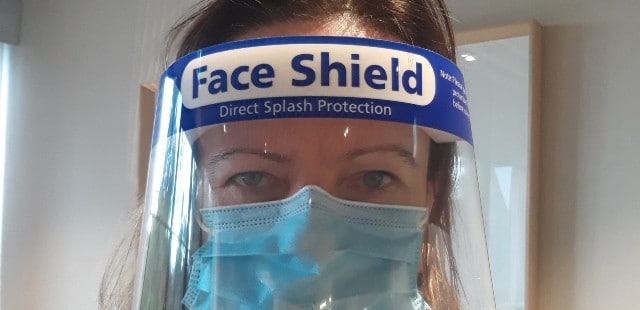
By Melanie Moore
The senior doctor appeared at the checkpoint transitioning out of the hospital’s Red Zone to the non-COVID corridor, shoulders heavy from an invisible burden. Approached by those on guard, he was again directed on the procedure to transition safely across this threshold. Time ticked by slowly as masks and shields were replaced and hands sanitised. “I’ve been on a 12-hour shift”, he laments to me, eyes weary, longing for rest.
Hospital staff have shared with me a common theme about their anxiety and the very real threat, both physical and emotional, during the global COVID-19 pandemic: facilitating loved ones to say their final goodbyes to COVID positive patients via an iPad instead of at their bedside has challenged their moral values of person-centred care and what exemplifies a respectful and reverent death.
There is growing interest in the concept of moral injury as explaining the psychological, social and spiritual impact of events that involve betrayal or transgression of deeply-held moral beliefs and values. Healthcare workers have faced situations that do not allow them to deliver care in the way they have been trained to (that is, to help people and do no harm). Staff have sought my ear as they share about the times their role called them to prevent family members from being at the side of a dying relative, following clinical directives that felt unethical. A moral injury was sustained. During this pandemic, keenly felt in Victorian hospitals, my role has highlighted the unique place chaplains hold with pre-existing relationships and staff knowledge of the distinct role chaplains offer in this high-stress environment. There is an inherent trust by many in the chaplain’s ability to listen, support and offer hope and strength in a time of crisis. This expectation would become a heavy load to carry without the knowledge, hope and faith I have in the One who carries me.
I have seen times of adversity used by God to bring staff and patients to a place of re-framing their response to seeing the event as an opportunity to grow closer to Him and make positive changes in their lives. The rituals of the church are a beautiful tool in this process in offering confession, forgiveness, hope and reconciliation in Jesus Christ.
While many aspects have been challenging, I found remaining resilient during the second wave of COVID infection was the most difficult. For one, the pastoral load was more intense from larger numbers of COVID positive patients, and secondly, staff were physically and emotionally exhausted. Enforcing visitor restrictions was heartbreaking for all involved. Bereavement calls to those whose loved ones had died at our hospital following an aged care COVID outbreak required my sharpest skills and much prayer.
To be a presence among people who are sick and dying, at a time when we must be socially distanced, is a both privilege and a challenge. I usually spend 75 per cent of my time in the palliative care ward offsite from the acute hospital. As these palliative rooms were part of the building where a major aged care outbreak occurred, I remained at the acute hospital for many weeks of the pandemic while the offsite palliative ward received a deep clean. I visited patients and was often required to wear more than the standard mask and face shield. Full personal protective equipment (PPE) is a requirement in many rooms which includes an isolation gown, gloves, N95 mask and face shield. It is difficult to breathe and to connect with people when all they can see are your eyes. We cannot touch people, or the few loved ones allowed to visit, all of whom are grieving. My great comfort is in the God whose loving presence knows no boundaries. I can offer this reassurance of Jesus’ abiding presence, hope and love in the storm of crisis, fear and displacement.
Resources that I have drawn on in my ministry of care have been nourishing to others and to me. Scripture reminds me that God has always been sovereign and continues to create beauty out of the broken. I reflect on Peter walking on the water to Jesus (Matthew 14:22-36; Mark 6:45-56; John 6:16-24). Was I focusing on the storm or the Saviour? Would I lessen my trust in the apparent security of the boat to dwell closer to Him? Practical aspects included limiting my news and social media time. Normally I would search only for the daily COVID numbers in Victoria and little other news. Self-care continues to be vital in all I am called to give out to others. Interestingly, across July and August I ran a six-week self-care for healthcare workers group as the research unit of my Masters in Christian Counselling. It was a God-ordained time to support frontline healthcare workers from five major hospitals and community healthcare centres in these sessions. This provided a harbour in the tempest for us all.
I am continually surprised by moments of grace, where God breaks in through moments of divine assistance given for our regeneration. May we continue to keep our eyes fixed on the author and perfector of our faith, in both the storm and the serenity of our lives.
The Revd Melanie Moore is Anglican and Palliative Care Chaplain with Northern Health.








